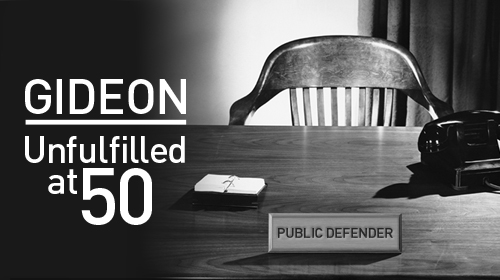Planned Parenthood Files Lawsuit to Restore Abortion Access, on Heels of Voters Approving Right to Reproductive Freedom Initiative
KANSAS CITY — Following the passage of Amendment 3, the Right to Reproductive Freedom Initiative, Missouri’s two Planned Parenthood providers filed suit to restore abortion access in the state. The lawsuit seeks to enjoin Missouri’s numerous abortion bans and countless burdensome, medically unnecessary restrictions on abortion that do not improve care or protect patient health. Missouri will be the first state with a post-Dobbs total abortion ban to approve and implement a state constitutional amendment making abortion a fundamental right.
The lawsuit was filed by Comprehensive Health of Planned Parenthood Great Plains and Planned Parenthood Great Rivers, represented by Planned Parenthood Federation of America, the ACLU of Missouri, and the American Civil Liberties Union. In the lawsuit, reproductive health care providers seek to block a number of state laws that are now in conflict with the Missouri Constitution.
The lawsuit, which was filed in the 16th Circuit Court of Jackson County, requests a preliminary injunction blocking the enforcement of some of the restrictions while the case proceeds, including:
Multiple outright abortion bans, including:
The first total abortion ban triggered by the Dobbs decision
Cascading gestational age bans
Bans that stigmatize and limit abortion care based on a patient’s reason for having an abortion
TRAP laws that unfairly target abortion providers, including:
Unnecessary facility requirements
Hospital admitting privileges requirements
Biased and medically inaccurate counseling requirements
Forced delay periods that require patients to make multiple trips to a clinic for care
A ban on the delivery of medication abortion by telemedicine
A physician-only law that prevents qualified medical professionals from providing abortion care
Criminal penalties for abortion providers
If the requested preliminary relief is granted, Planned Parenthood’s health centers would be able to begin providing abortion in Missouri once more — restoring access to this constitutionally protected health care.
"Missourians have spoken and we're ready to deliver," said Emily Wales, president and CEO of Comprehensive Health of Planned Parenthood Great Plains. "There are many restrictions to challenge before access can be fully realized, but we're proud to continue this fight to make sure everyone in this state can have the safe, legal abortion care they deserve. And soon, when Missourians ask where they can get care, we’ll have a simple answer: right here at home."
“Missourians have voted to build meaningful abortion access in their state, and our lawsuit is the next step toward that goal. Our patients and their access to the care they need have long been our north star; we see how abortion bans, TRAP laws, and political attacks have blocked them from care for far too long, said Richard Muniz, interim President and CEO of Planned Parenthood Great Rivers. “Our organization was the last abortion provider in the state before the Dobbs decision, which then forced patients to take on the additional burden of traveling out of Missouri to see our providers in Illinois — where abortion is legal, safe, and free of excessive barriers. Our patients deserve every right to control their bodies, lives, and futures — and soon, they won’t have to cross state lines to do so. We are ready to provide safe, legal abortion in Missouri again.”
“With this lawsuit, we are continuing the work of rebuilding abortion access in Missouri,” said Alexis McGill Johnson, president and CEO of Planned Parenthood Federation of America. “Missourians have lived under layers of abortion restrictions for decades, including abortion bans that disproportionately endangered Black and Latino people in the state. Now is the time to peel those layers back and ensure that Missourians can make reproductive health decisions without politicians getting in the way. Planned Parenthood Federation of America is proud to fight alongside our affiliates in restoring abortion access, and we will continue to push for reproductive freedom for all Missourians.”
The case, Comprehensive Health of Planned Parenthood Great Plains and Planned Parenthood Great Rivers v. State of Missouri, was brought within 24 hours of Missouri voters passing the Right to Reproductive Freedom Initiative, which appeared as Amendment 3 on the 2024 General Election ballot. The amendment creates and protects the fundamental right to reproductive freedom, which is the right to make and carry out decisions about all matters relating to reproductive health care, including prenatal care, childbirth, postpartum care, birth control, abortion care, miscarriage care, and respectful birthing conditions.
“Yesterday, Missourians voted to end Missouri’s abortion ban and protect reproductive freedom. Today’s lawsuit is the next step to fulfill the promise of the amendment,” said Tori Schafer, Director of Policy and Campaigns at the ACLU of Missouri. “This is a testament to all of the people who joined our grassroots coalition of organizations and volunteers, who tirelessly collected signatures, phone banked, and knocked on doors to give Missourians the opportunity to pass Amendment 3 at the ballot box.”
Following the United States Supreme Court’s decision in Dobbs v. Jackson Women’s Health Organization, which overturned Roe v. Wade, Missouri became the first state to enforce a total abortion ban, with no exceptions for rape, incest, or the woman’s health. However, a web of medically unnecessary restrictions, like a mandated 72-hour waiting period, invasive and unnecessary pelvic exams, and hospital-like facility requirements, had severely limited access to abortion in the state even before the Dobbs decision. For years Missouri had only three health centers in the state providing abortion care until unnecessary restrictions became too cumbersome, leaving just one health center at Planned Parenthood Great Rivers in St. Louis to provide abortion care from 2018 until the Dobbs decision triggered Missouri’s abortion ban.
Read the full petition.
Court Case: Comprehensive Health of Planned Parenthood Great Plains & Planned Parenthood Great Rivers v. Missouri
Affiliate: Missouri


